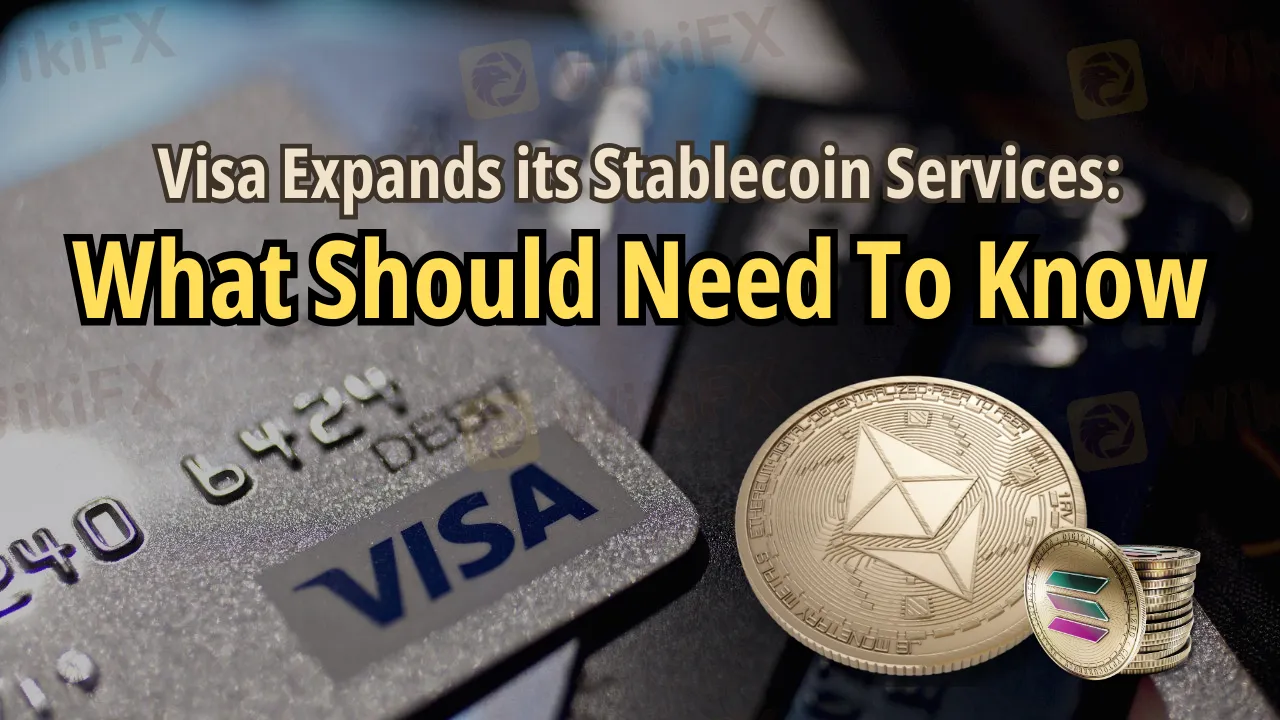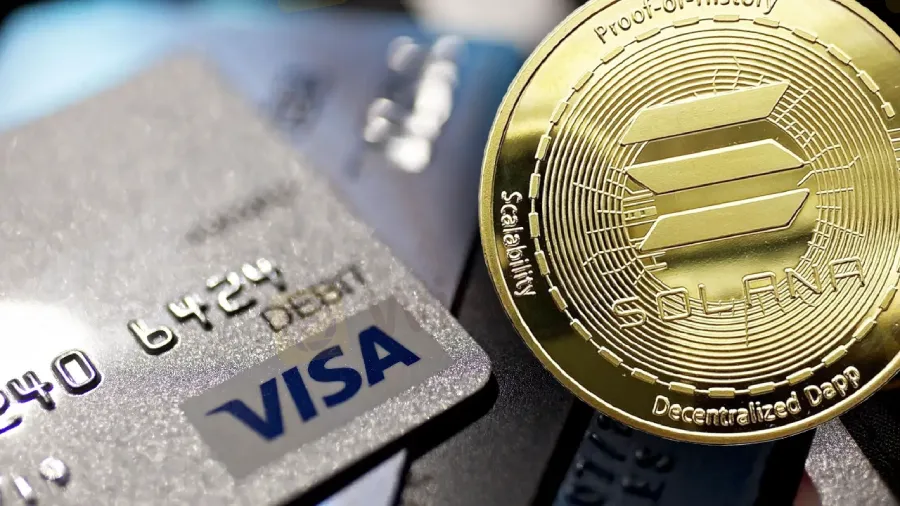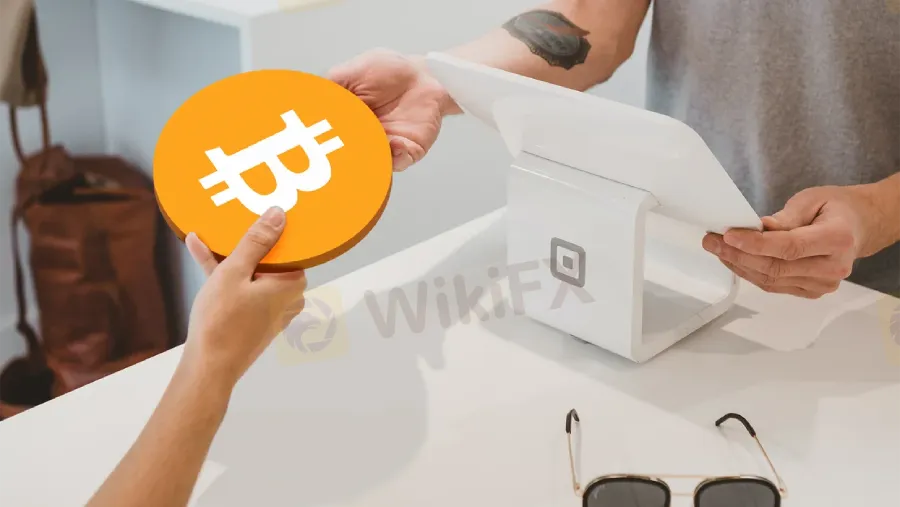简体中文
繁體中文
English
Pусский
日本語
ภาษาไทย
Tiếng Việt
Bahasa Indonesia
Español
हिन्दी
Filippiiniläinen
Français
Deutsch
Português
Türkçe
한국어
العربية
BREAKING: Visa Expands its Stablecoin Services - What Should Need To Know
Abstract:Explore Visa's venture into digital currency with Solana and its partnership with Worldpay and Nuvei. Dive into the future of stablecoin transactions.

What's Happening?
Visa, a leading payments company is pushing forward in the digital currency space. They've expanded their ability to use stablecoins for settling payments, and now, they're involving the Solana blockchain network in this. Alongside, Visa is launching pilot programs with merchant acquirers like Worldpay and Nuvei. Their primary goal? To make the transfer of the stablecoin, USDC, smooth and efficient.
Background Info
Previously, Visa worked alongside Crypto.com and Circle. Together, they made use of USDC and another blockchain network, Ethereum, to quickly settle payments between those who issue and those who accept payments. With Solana in the picture now, Visa aims for even swifter and more affordable transactions for clients using stablecoins.

Cuy Sheffield, who leads the crypto segment at Visa, pointed out how these efforts make cross-border settlements faster. Using blockchain networks like Solana and Ethereum, along with stablecoins like USDC, they hope to provide a modern, quick method for clients to deal with funds.
How Does This Benefit Merchants?
Before this, when you made an international purchase, your payment had to undergo a long conversion process involving traditional currencies. But with stablecoin settlement, the process becomes quicker.
Jim Johnson from Worldpay Merchant Solutions emphasized that the evolving commerce landscape requires diverse funding options and flexibility. Merchants, in turn, will benefit from such advancements.

Why Solana?
Solana is gaining traction as a popular blockchain network. It boasts its ability to manage over 2,000 transactions every second. However, its worth noting that there were some technical glitches with Solana in the past year.
Visa's Vision
With these moves, Visa is aiming to be a trailblazer in the digital currency world. By using crypto for settlements, they are getting their systems ready for the new-age internet (often called Web3). The belief is that stablecoins, like USDC, offer the promise of almost immediate settlement – a significant leap from the slower traditional bank transfers.

Why Worldpay and Nuvei?
Both Worldpay and Nuvei work with a vast range of merchants. These merchants are increasingly mingling with the crypto world, dabbling in areas like NFT marketplaces, crypto introduction platforms, and games based on blockchain, as per the press release.
Nuveis CEO, Philip Fayer, regards stablecoins, especially USDC, as revolutionary in the payments sphere. They can potentially supercharge the growth of online businesses globally.
Stay updated with such news by checking out the WikiFX App on your smartphone. Download the App here: https://www.wikifx.com/en/download.html

Disclaimer:
The views in this article only represent the author's personal views, and do not constitute investment advice on this platform. This platform does not guarantee the accuracy, completeness and timeliness of the information in the article, and will not be liable for any loss caused by the use of or reliance on the information in the article.
Read more

First Unfair Trading Case Reported Under South Korea’s Virtual Asset User Protection Act
The Financial Services Commission (FSC) of South Korea has disclosed the first case of unfair trading following the enactment of the Virtual Asset User Protection Act. This law, which took effect in July 2024, aims to regulate the cryptocurrency market and protect investors from fraud and market manipulation.

Upbit Faces Severe Penalties for AML and KYC Violations
Upbit, South Korea’s leading cryptocurrency exchange, faces severe penalties for over 700,000 AML and KYC violations.

BSP Pushes for a Cashless Philippines by 2025
The BSP accelerates cashless transactions, aims for a coin-lite society, eliminates small fund transfer fees, and drives financial inclusion by 2025.

Maya Bank Disburses PHP 68B in Loans, Sets 2024 Record
Maya Bank disburses PHP 68B in loans in 2024, advancing financial inclusion with digital banking innovation, BSP compliance, and secure financial solutions.
WikiFX Broker
Latest News
How Long Can the Dollar Remain Strong?
Forex Price Trend Prediction! | Come be a New Year Price Winner!
HFM NY Special Offer!
How a Promised RM1.4 Million Return Turned into a Costly Scam
Cinkciarz.pl Under Fire: Frozen Accounts, Missing Funds
First Unfair Trading Case Reported Under South Korea’s Virtual Asset User Protection Act
“Predict and Win” Big Rewards! Join the Contest Now
South Korean President Yoon Suk Yeol's Arrest Shakes Markets
Titanium Capital LLC Ponzi Scheme: Henry Abdo Admits Fraud, Impacting Over 200 Investors
South Korea's Crypto Regulation Updates for 2025
Currency Calculator






